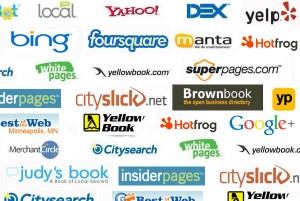 Local Search 101: Key Ranking Factors
Local Search 101: Key Ranking Factors
Local search sites such as Google+ are a key element of modern small business Internet marketing. But you need to make sure you are taking the right steps in order to maximize your local search visibility. Here are some of the basic things you need to make sure you are doing with your local search page:
LOCATION
Physical Address: You need to let people know where your business is located but this can get tricky if your business is located just outside of a major metropolitan area that you would like to target (such as being in a suburb of a larger city). Your best bet is to create local pages on your site for that city to boost search results. Google can also see where a user is located and often will cater results to their location.
You can also add a city and state to the title tag on your main landing page and other site pages to give sites like Google a clue to your business’ true location.
Listing Citations: Citations are mentions of your business’s Name, Address and Phone Number (NAP). You want to make sure that these are always consistent from listing site to listing site. Using slightly different business names, addresses or phone numbers will hurt your rankings. This is especially true for the NAP you have listed on your local search page versus the NAP listed on your website.
You also want to make sure that you are only listed on high quality sites. Use a tool like GetListed.org to find the leading local search directories. You can also do a web search for your business category in your area to find top results or go to Whitespark’s Local Citation Finder. Locally-relevant citations like Chamber of Commerce listings are positive, as are citations from sites relevant specifically to your industry.
Phone Numbers: Always use your local area code instead of a toll-free number in a local listing.
ORGANIZATION
Domain Authority and Links: Your site will rank higher in local search results if it has a high “Domain Authority.” This metric is based on a website’s age and quality. Doing solid SEO work with local SEO services like eVisible also help. Having high quality links to your site provide a strong signal to search engines about your site. Also, make sure the link you publish on a local search site is your home page or another page with high Page Authority.
Site Verification: When you create a local listing on a site, they will typically ask you to verify it before it goes live. This could be through a link or a verification code sent via a postcard or email.
CONTENT
Business Categories: It’s critical that you take the steps to make sure your business is categorized correctly. If you are setting up a Google+ Local listing, you’ll have to give your general business type and then be able to drill down to specific subcategories.
Reviews: Having a lot of positive reviews for your business is a great thing. However, Google will be concerned if they see a high volume of reviews come in too quickly — this is a sign that the reviews are fake. Encourage customers to give positive reviews but don’t try to “buy” reviews. Having positive third-party reviews (such as from newspapers and blogs) can also improve rankings.
Business Name: If you are starting a new business, you might rank higher more quickly if you include the service you provide in your name. But don’t rename your business or use a different name online – this will only hurt your rankings.
